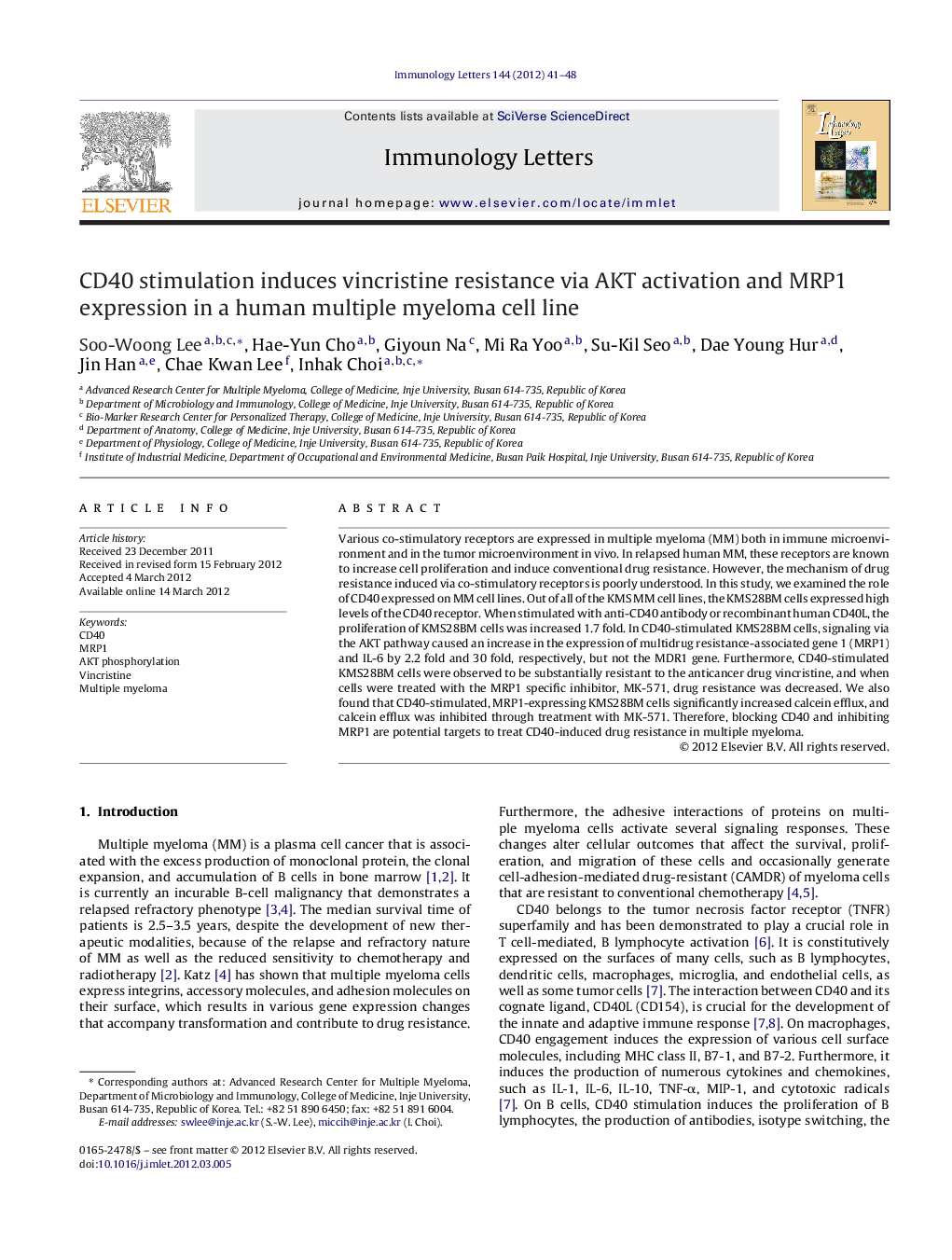| Article ID | Journal | Published Year | Pages | File Type |
|---|---|---|---|---|
| 3355694 | Immunology Letters | 2012 | 8 Pages |
Various co-stimulatory receptors are expressed in multiple myeloma (MM) both in immune microenvironment and in the tumor microenvironment in vivo. In relapsed human MM, these receptors are known to increase cell proliferation and induce conventional drug resistance. However, the mechanism of drug resistance induced via co-stimulatory receptors is poorly understood. In this study, we examined the role of CD40 expressed on MM cell lines. Out of all of the KMS MM cell lines, the KMS28BM cells expressed high levels of the CD40 receptor. When stimulated with anti-CD40 antibody or recombinant human CD40L, the proliferation of KMS28BM cells was increased 1.7 fold. In CD40-stimulated KMS28BM cells, signaling via the AKT pathway caused an increase in the expression of multidrug resistance-associated gene 1 (MRP1) and IL-6 by 2.2 fold and 30 fold, respectively, but not the MDR1 gene. Furthermore, CD40-stimulated KMS28BM cells were observed to be substantially resistant to the anticancer drug vincristine, and when cells were treated with the MRP1 specific inhibitor, MK-571, drug resistance was decreased. We also found that CD40-stimulated, MRP1-expressing KMS28BM cells significantly increased calcein efflux, and calcein efflux was inhibited through treatment with MK-571. Therefore, blocking CD40 and inhibiting MRP1 are potential targets to treat CD40-induced drug resistance in multiple myeloma.
► CD40 expression and function in human multiple myeloma cell lines (KMS) are investigated. ► CD40 stimulated KMS28BM cells were showed an increased cell proliferation and the expression of MRP1 and IL-6. ► Expression of MRP1 by CD40 stimulation in KMS28BM cells was induced via PI3k/AKT signaling. ► MRP1-expressing KMS28BM cells showed an anticancer drug vincristine resistance. ► CD40 blocking or MRP1 inhibition could be crucial in overcoming conventional drug resistance in patients with relapsed multiple myeloma.
